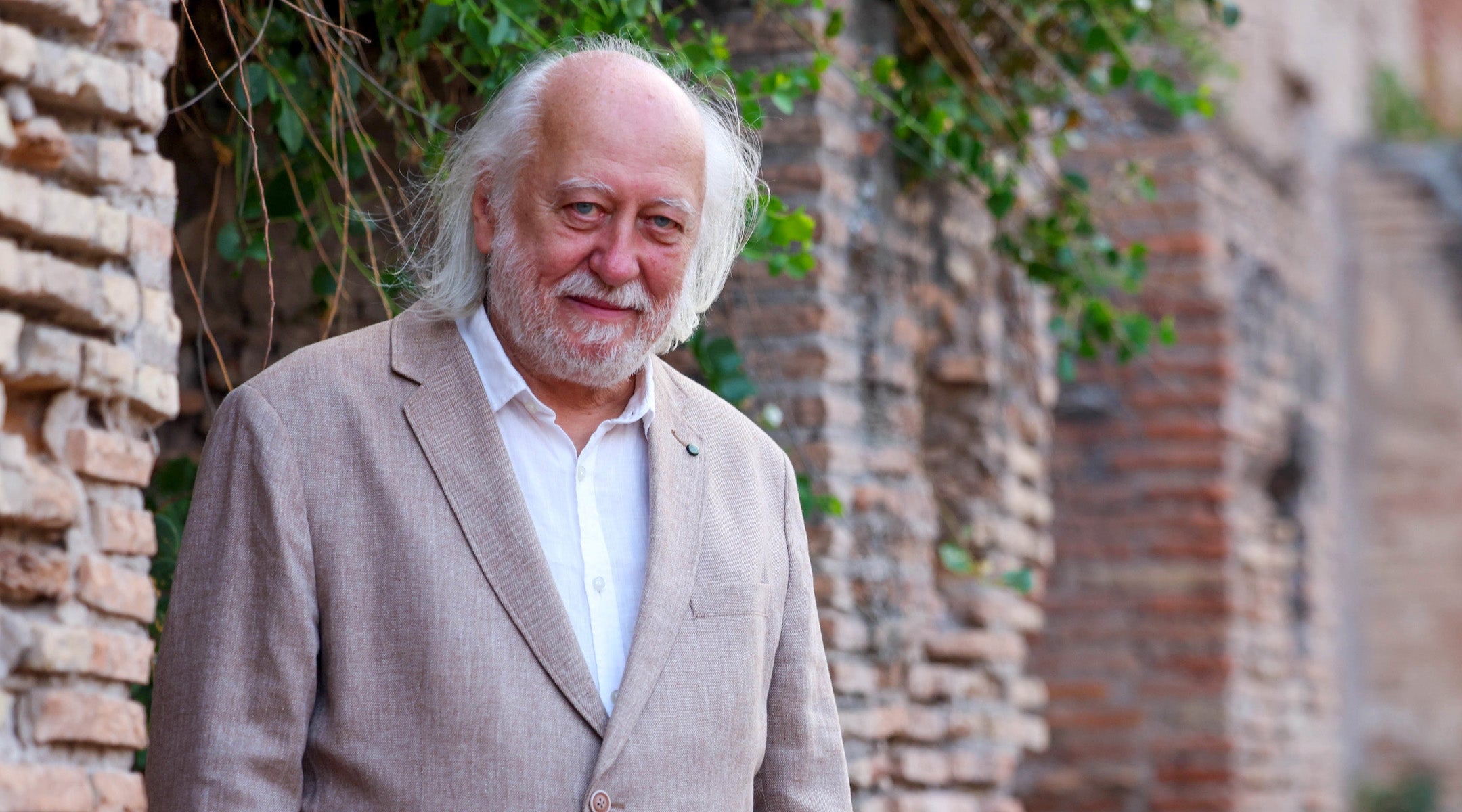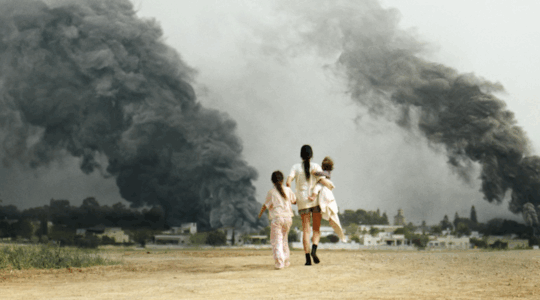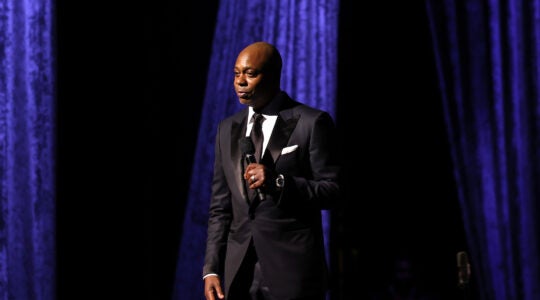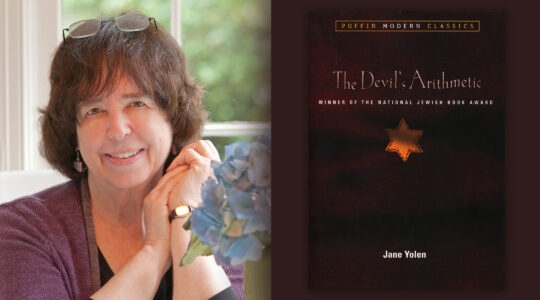This year’s Nobel Prize for literature was awarded to a Hungarian writer whose work offers bleak visions of existence, and whose father hid his Jewish ancestry from him for much of his childhood.
László Krasznahorkai, the 71-year-old novelist and screenwriter, achieved international acclaim for formally daring books like “Satantango” and “The Melancholy of Resistance,” as well as a series of collaborations with the filmmaker Bela Tarr. He is often compared to master Russian novelists like Dostoyevsky and Gogol.
The Swedish Nobel jury called him “a great epic writer in the Central European tradition that extends through Kafka to Thomas Bernhard, and is characterized by absurdism and grotesque excess.” Another prominent champion of Krasznahorkai’s: the Jewish culture critic Susan Sontag, who praised the infamous 7.5-hour film adaptation of “Satantango” and deemed him a “master of the apocalypse.”
Krasznahorkai was born in 1954 in the small town of Gyula, near the Romanian border. As a child, he has said in interviews, he had no idea his father hailed from a Hungarian Jewish family. In 1931, as antisemitism was on the rise in Hungary but before the passage of formal anti-Jewish laws in the country, the author’s grandfather had changed their family name from Korin to the more native Hungarian-sounding Krasznahorkai.
“Our original name was Korin, a Jewish name. With this name, he would never have survived,” Krasznahorkai told a Greek interviewer in 2018. “My grandfather was very wise.”
When the author turned 11, he learned about his Jewish heritage for the first time. “In the socialist era, it was forbidden to mention it,” Krasznahorkai has said about his Jewish ancestry. “Korin” would later serve as the name of the protagonist, a suicidal Hungarian archivist, in Krasznahorkai’s acclaimed 1999 novel “War and War.”
Many of the author’s books, written in challenging postmodern style, are concerned with the effects of political turmoil and national upheaval on everyday citizens, from provincial farm workers to intellectuals. Some of his novels, including “Hersch 07769” and “Baron Wenckheim’s Homecoming,” have plots that deal directly with neo-Nazis.
In that 2018 interview, the author, an outspoken opponent of Hungary’s authoritarian prime minister Viktor Orban, also addressed his relationship to Judaism in characteristically pessimistic fashion.
“I am half Jewish,” he said, “but if things carry on in Hungary as they seem likely to do, I’ll soon be entirely Jewish.”
JTA has documented Jewish history in real-time for over a century. Keep our journalism strong by joining us in supporting independent, award-winning reporting.





